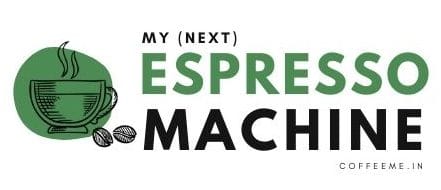I’ve been getting a lot of questions about Espresso vs. coffee lately, so I’d put together a post to answer the most common ones.
Whether you’re a coffee lover or an espresso devotee, there’s no disagreement that these two drinks are quite different. So, what is Espresso, anyway? Is it just a more concentrated version of coffee? Or is there something else that makes it unique?
In this post, we’ll explore the origins of Espresso and discuss what sets it apart from other coffee drinks.
What is the difference between Espresso and coffee?
For many people, coffee is an integral part of the morning ritual. But what exactly is coffee, and how does it differ from Espresso?
Coffee and Espresso are both made from coffee beans, which are roasted and ground before being brewed. The brewing technique is what makes these two drinks different.
Coffee is brewed by pouring hot water over the ground beans and allowing them to steep for several minutes.
On the other hand, Espresso is brewed by forcing high-pressure hot water through a small amount of ground beans. This results in a robust and concentrated beverage with a distinctively bold flavor. Espresso is also the base for many popular coffee drinks, such as lattes and cappuccinos. So next time you reach for your morning cup of joe, take a moment to appreciate all the work that went into making it.
Is Espresso just strong coffee?
While Espresso is undoubtedly stronger, it’s not just regular coffee that has been boiled for longer. The brewing process for Espresso is quite different from that of regular coffee.
As I mentioned, Espresso is brewed with high pressure to force hot water through a small amount of ground beans. This results in a concentrate mixed with hot water to create the finished drink.
The high pressure in the brewing process extracts more of the coffee beans’ oils and flavors, resulting in a stronger taste. Espresso also has a higher caffeine content than regular coffee, so it’s perfect for those mornings when you need an extra energy boost.
The history of Espresso
The first recorded instance of espresso coffee being made was in the early 1600s in Italy. At that time, coffee was primarily brewed using a method known as the Moka pot. This method involves boiling water and passing it through ground coffee beans. However, the resulting coffee was often weak and watered down.
Angelo Moriondo developed a new brewing method that forced hot water through tightly packed coffee grounds using high pressure. This resulted in a much more concentrated and flavorful cup of coffee. However, Moriondo’s invention was met with little enthusiasm from his contemporaries, and it wasn’t until the early 1900s that Espresso began to gain popularity.
Nowadays, Espresso is one of the most popular coffee drinks worldwide and is enjoyed by millions of people every day. Whether you like it plain or with milk and sugar, there’s no denying that this strong brew packs a serious punch!
Are espresso beans and coffee beans the same?
While both are coffee beans, they are different in the roasting process. Espresso beans are roasted longer, which results in a darker color and a bolder flavor. They are also ground more finely than coffee beans, allowing more of the bean’s oils and flavors to be extracted during the brewing process.
Why do people drink Espresso?
There are several reasons why people might choose to drink Espresso. For some, it’s simply a matter of preference – they enjoy Espresso’s bold, intense flavor and find it more satisfying than a cup of coffee.
Others might drink Espresso to get a quick energy boost. The high concentration of caffeine in Espresso can give you a jolt of energy that can be helpful when you’re feeling tired or sluggish.
Some people might also drink Espresso as part of a healthy diet and lifestyle. The antioxidants in Espresso can offer some health benefits, and it is a lower-calorie option than many other coffee drinks.
Whatever the reason, there’s no doubt that Espresso has become a popular choice for many coffee drinkers.
Is Espresso stronger than a cup of coffee?
As mentioned before – Espresso is definitely stronger than a cup of coffee. This is due to the brewing method used to make Espresso.
The high pressure in the brewing process extracts more of the coffee beans’ oils and flavors, resulting in a more intense taste.
Espresso also has a higher caffeine content than regular coffee, so it’s perfect for those mornings when you need an extra energy boost.
Is Espresso stronger than Red Bull?
We already saw that Espresso is more robust than regular coffee and has higher caffeine content. But is it stronger than an energy drink?
Red Bull is an energy drink containing natural and synthetic ingredients like caffeine and taurine.
One can of Red Bull contains about 80 mg of caffeine, while an espresso has about 64 mg of caffeine. Other ingredients in Redbull also have energizing traits, such as sugar and taurine.
So while Espresso has a stronger, bold, bitter taste, Red Bull might have a more substantial energizing effect in the short run because of the other ingredients. In fact, consuming too many energy drinks in a short time frame (like when cramming for exams) might have very adverse medical effects on your body.
Is Espresso better for your stomach than coffee?
The effect of coffee on your stomach depends on the beans, the roast level, and the brewing method. Generally speaking, a dark roast is easier on your stomach than a light roast.
Espresso is also less acidic than drip coffee because the brewing removes some acid-producing oils from the beans. The result is a coffee that is less likely to cause stomach upset.
So, is espresso coffee healthy? Moderation is the key!
Espresso coffee has many health benefits. Some of the health benefits of Espresso include:
- A good source of antioxidants
- Helps improve mental alertness
- Can help to reduce the risk of diabetes
Overall, drinking espresso coffee can have some positive effects on your health. However, it is important to remember that, like all things, moderation is key. Drinking too much coffee, including Espresso, can lead to side effects such as anxiety and insomnia. So make sure to enjoy your Espresso in moderation!
Can Espresso make you tired?
Drinking Espresso in moderation is not likely to make you feel tired. In fact, the opposite is true – Espresso can give you a quick energy boost thanks to the high concentration of caffeine. However, you might feel more tired once the caffeine effect is over. You may also develop caffeine tolerance requiring higher dosages to feel the same energy level. Yes – caffeine can be addictive.
Espresso machine vs. drip coffee machine – which should you get?
The answer to this question depends on your personal preferences. If you like Espresso’s bold, intense flavor, then an espresso machine is your better option. A drip coffee machine might be better for you if you prefer milder coffee.
Another factor to consider is how much time and effort you’re willing to put into making your coffee. Espresso machines can be somewhat demanding and require some practice to get the perfect cup of coffee. Drip coffee machines are generally much easier to use and produce consistent coffee with less effort.
So, ultimately, deciding which type of machine to get depends on your preferences. Both types of machines have their pros and cons.
Espresso vs. Cofee – some Final thoughts
Espresso is a coffee drink made by forcing hot water through pressurized, finely-ground coffee beans. Compared to regular coffee, the result is a thicker, more concentrated coffee with a layer of crema on the top.
While Espresso may be stronger than regular coffee, it has many health benefits from drinking it in moderation. It also has a unique flavor that some people prefer over regular coffee.
If you’re looking for a strong cup of coffee to start your day or want to try something new, then Espresso is definitely the drink for you!
Whether you’re a first-time espresso drinker or an experienced enthusiast, we hope this article has taught you something new about your favorite caffeinated beverage.
Source:
Why does coffee make me tired? Medical News Today, 2019



